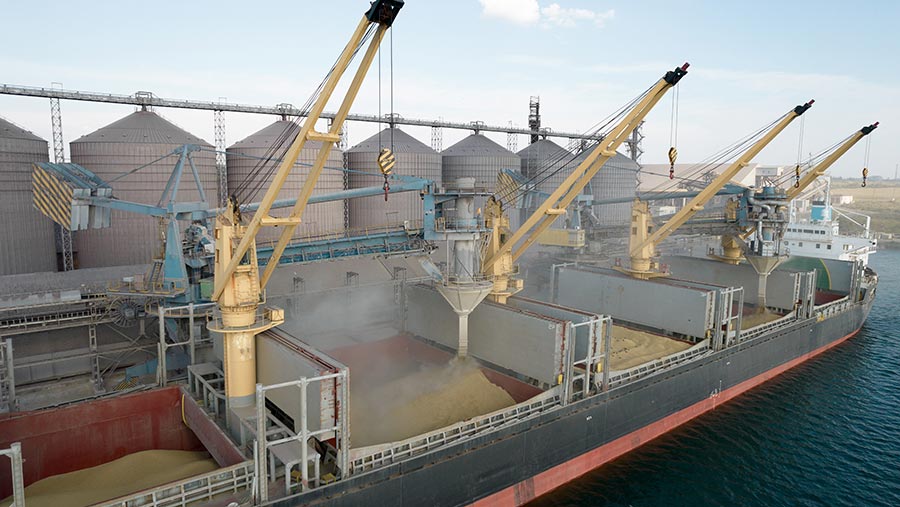Wheat prices strengthened by lower global production
 © Elena/Adobe Stock
© Elena/Adobe Stock Tighter global supplies of grain have added some short-term support to wheat prices this week.
Production estimates have been lowered for 2023-24 in Australia, Canada, Argentina and the EU in the US Department of Agriculture’s latest World Agriculture Supply and Demand Estimates report.
The report said, if realised, this would be the first year-on-year decline in global wheat production since 2018-19 at 1.054bn tonnes.
See also: Barley-wheat price gap narrows to less than £17/t
UK feed wheat futures were slightly supported by the announcement and opened at £186.1/t on 13 September for the November contract, up marginally on the previous day.
However, some reductions in supply had already been priced into the market earlier in the week, with Stats Canada and the Australian Department for Agriculture both having released reduced production estimates.
Global consumption levels, exports and ending stocks have also been revised down by USDA analysts compared with month-earlier levels.
Peter Collier, senior adviser at CRM AgriCommodities, said cuts in production in some countries were generally expected by traders.
“Wheat appears to be relatively undervalued in comparison with corn,” he said. “There is a very small premium for wheat over corn looking at Chicago futures, but that’s not necessarily reflective of how much tightening there has been in terms of wheat supply this coming season.”
Mr Collier added that UK November futures are under pressure relative to the European market.
“We are at almost €20/t [£17/t] discount for UK feed wheat versus Paris milling wheat for November contracts, but then, if we move forward to May 2024, we are a lot higher and are seeing a very strong carry between November and May in domestic markets.”
The market is signalling that, with a strong carry, there is an incentive for farmers to store, he concluded.
Traders at ADM said that while the UK has become a bit more competitive for wheat, it is still some way away from being export competitive.
Grain import bans
Restrictions imposed on Ukrainian grain by Bulgaria, Hungary, Poland, Romania, and Slovakia are due to expire on 15 September unless the EU Commission decides to adopt further measures to extend them.
However, ministers in Poland announced on 12 September they would extend the ban on imports of certain Ukrainian agricultural products after 15 September, regardless of the EU Commission’s decision.
Poland’s prime minister, Mateusz Morawiecki, added: “Either the European Union in three days, at our request, will extend the ban on the import of Ukrainian grain, or we ourselves, unilaterally, will implement such solutions as we have already implemented in mid-April to protect the Polish market.”
This news will come as a blow to Ukraine, which had been increasing exports of grain through Poland.
Ukrainian prime minister Denys Shmyhal warned on X, formerly known as Twitter, that this move would be a violation of trade law and Ukraine would be forced to turn to the World Trade Organization for arbitration.
